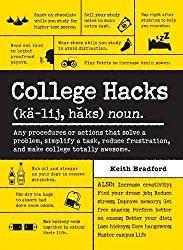
We’re told from a young age that to save is good. We get a piggy bank and are told to put our change into it. The old piggy banks didn’t even have a hole with a stopper at the bottom, so you needed to “break the bank,” literally, to get your money out. You didn’t do that unless it was something you really, really wanted. As we get older perhaps the bank comes by the school and gives away toys to those who open a savings account. Maybe we get savings bonds for birthday gifts from aunts and uncles, being to told to save for our futures.

And then we get to college and are handed the Free Application for Federal Student Aid, inconveniently called the “FAFSA.” With the FAFSA, saving is bad. In fact, those who learned to save are penalized, while those who learned to spend are noble. Save up a couple of thousand dollars in a savings accounts, having kept all of those gifts from aunts and uncles? Great, you can pay that towards tuition. Did your parents create a stock account for you when you were young? Even better, you can pay that for tuition too. Did you decide to ride a bike and save all of that money from your summer jobs? Great, more money towards tuition for the college. But spend everything from your summer jobs on cell phones, cars , and junk, and you get a grant. If you parents did the same, you get an even bigger grant. Spending, good. Saving, bad.

So what is the cost of college? It isn’t the $40,000 to $60,000 per year figures you see in US News and World Report for state schools and the $100,000 per year you may see for some private colleges. Almost no one actually pays those amounts since they get deals and “financial aid” from the schools. Instead, it is “all that you can pay.” And if you have money saved up, you first pay all of that, then the school will “help” with whatever is left, the amount of help you get depending on how much your parents make in salary and their life choices.
So here we learn that making “good ” choices is bad. Saving is good, but having money saved up is bad. Being responsible when deciding to have children is good, but having only one child instead of eight on a $60,000 per year salary is bad. Staying in the same job at a low salary for 20 years? Good. Advancing up the ladder? Bad. (Don’t get me wrong here – I know there are limits to where each person can advance, both from natural capability and choices/situations growing up. Certainly college shouldn’t be closed for children of good, hard working people who are just not able to move above a certain income level. These are the people financial aid is really meant to help. My point is that if you choose to stay in a low wage job, you’ll pay less for your children to go to college than someone else who worked to move up the ladder, so the pricing structure makes it better to stay put than to advance. Is this a good thing?)
Perhaps the worst thing about college tuition is the lack of connection to the value of the product that the pricing scheme creates. Someone who only makes $80,000 per year might look at a $100,000 per year tuition and wisely decide that it really isn’t worth the money, just as the same person would probably decide a $100,000 sport car was not worth the money and there were better vehicles to get them to work. But what if that sports car only cost you $40,000 if your salary was only $80,000, and cost you $100,000 only if you made $300,000 per year. Suddenly there would be all sorts of people driving around in $100,000 sports cars. Likewise, there are a lot of people from $80,000 households with Harvard or Yale stickers in their $20,000 cars’ windows because their children attend at greatly reduced tuition rates.

The odd thing is that college financing starts at the end of the process – after all of the bad choices have been made. Wouldn’t it be a lot less expensive for the people actually paying tuition if financing decisions started earlier? For example, what if you submitted the FAFSA when you first had children, and it was determined then that you needed to contribute a certain percentage of your salary into an educational savings account? Or maybe the amount that you would need to pay was determined at that point, and you could then decide how you wanted to pay for it? Maybe you would make payments over the next 18 years, or even over the next 24 years.
This way, the amount of aid you would receive would be based solely on your ability to pay based on the kind of job you had, instead on both your job and your spending habits. People would be encouraged to save up for college instead of being encouraged to spend all of their money so that they wouldn’t be charged as much for college. Think of how much the sticker price could drop if most people were paying the full cost, but just paying it over 20 years instead of four years. And think of how much less student debt there would be when people came out.
We’d make the saver noble instead of the spender. That seems like a good thing.
Follow me on Twitter to get news about new articles and find out what I’m investing in. @SmallIvy_SI
Disclaimer: This blog is not meant to give financial planning or tax advice. It gives general information on investment strategy, picking stocks, and generally managing money to build wealth. It is not a solicitation to buy or sell stocks or any security. Financial planning advice should be sought from a certified financial planner, which the author is not. Tax advice should be sought from a CPA. All investments involve risk and the reader as urged to consider risks carefully and seek the advice of experts if needed before investing.

